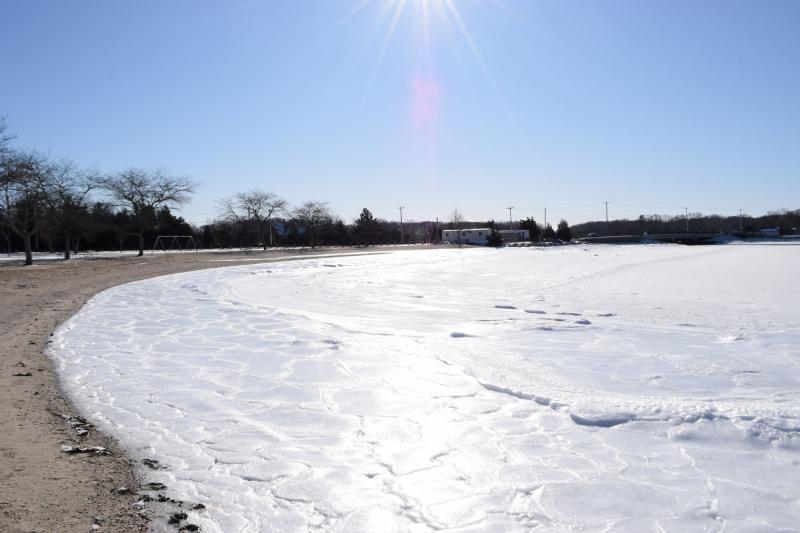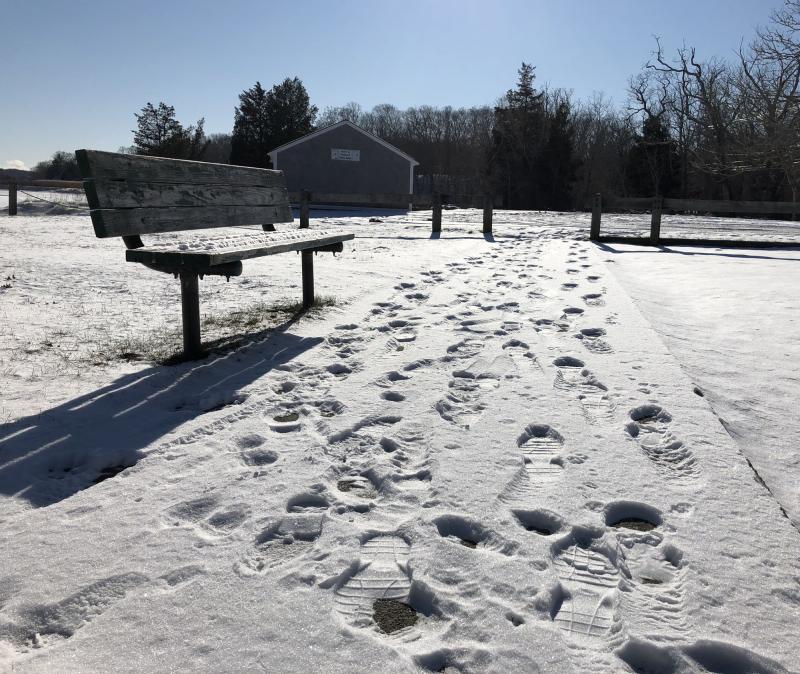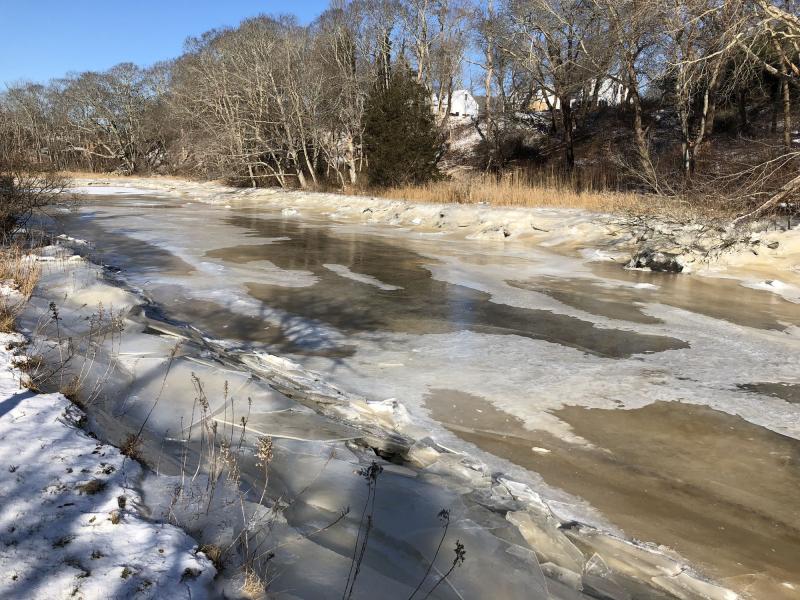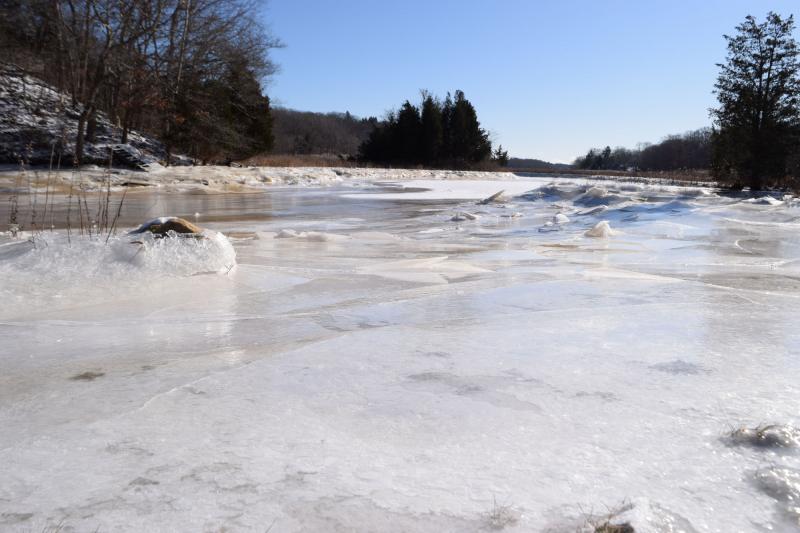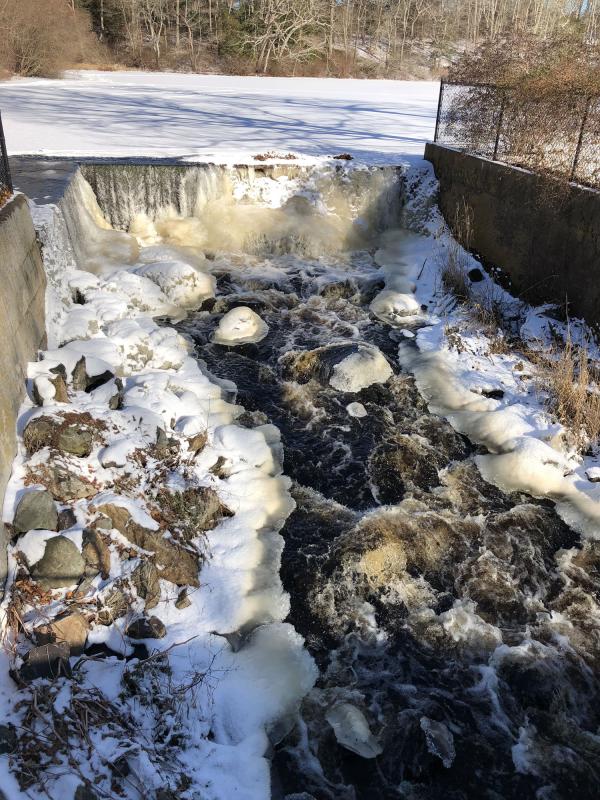Extreme cold comes with health, safety risks
Armand Santos was a letter carrier for 30 years. He’s trudged his way through snow, rain, and cold temperatures. But the recent arctic blast has kept the retiree inside more than he’d like.
“I go to the Y every day, but lately I’ve been only going once a week,” said Santos, adding that it’s been too cold to leave the house for his 5:30 a.m. workouts.
Residents are hunkering down as the temperatures hit the single-digits with wind chills into the negatives.
For Alice Santos, Armand’s wife, the cold has meant staying indoors as much as possible.
“I’ve been staying in the comfort of my own home,” she said. “As long as I’m there I can handle [the cold.]”
The cold weather has prompted fire departments to stress the dangers of ice and the importance of ensuring safety around the home.
“You look at the ice and it looks beautiful. Admire it from a distance. Stay off the ice,” said Fire District No. 1 Chief Brad Ellis.
Water in this area can be deceptive, Ellis explained. The inner Padanaram harbor may look frozen, but it’s salt water. And traveling on frozen ponds isn’t recommended either because they are brackish and marshy.
The below-freezing temperatures doesn’t mean the ice is necessarily strong enough to support the pitter patter of feet or paws. The cold reality is that every year a number of dogs dash onto the ice, only to suddenly find themselves under the ice and doing the doggy paddle in freezing water.
If that happens, Ellis urges humans to avoid following their pets, and call 911 immediately instead.
“If someone’s dog falls in, don’t rescue them,” Ellis said. “Call us and we’re going to go flying down there. We’d rather save a dog than a dog and a person.”
For those who fall through the ice, quick action is necessary because consciousness can be lost in under 15 minutes in freezing water.
“If you’re up and down, you’ll break the ice,” Ellis said. “Think of a porpoise going on a ledge. Stay as flat as possible to get back on the ice.”
The cold temperatures also means people are breaking out the space heaters and lighting fires in their fireplaces to stay warm. Proper safety precautions must be taken, explained District No. 3 Chief Richard Arruda.
“We have a lot of people using alternate heat sources this time of year,” Arruda said.
Chimneys must be clean and clear of soot to avoid chimney fires. Electric and oil-filled space heaters should be plugged directly into the wall socket to avoid issues with extension cords. They should be kept away from combustibles and children and pets to avoid burn risks.
Carbon monoxide is also a risk, especially as heating systems are working harder in the cold. Boilers and heaters should be inspected annually to make sure the unit and piping are in proper working order.
Any belief of carbon monoxide or fire in a building should be immediately reported.
“If there’s any question at all, call the fire department,” Arruda said. “We’re the experts in this field.”
Snowfall brings with it more risks in the form of obstructed pipes and exhaust vents from heating systems. Homeowners should ensure they are free of snow and ice to avoid any problems.
Finally, smoke and and carbon monoxide detectors should be checked and should be in working order, especially those near bedrooms.
The cold weather isn’t just a risk to humans: Pets also do not fare well in sub-zero temperatures. Dartmouth police and animal control already had to rescue one dog that was allegedly confined in a car for close to an hour. The dog’s owner is facing possible animal cruelty charges.
Owners should limit their pets’ exposure to the cold as much as possible, explained Melinda Ventura, Director of the Humane Society and Shelter in Dartmouth.
“If it’s too cold for you outside, then why wouldn’t it be too cold for your animal?,” Ventura said.
Pet owners should pay close attention to their furry friend’s paws. Paw checks should be done after coming in from the cold for frostbite.
Owners should also keep in mind the dangers of keeping pets in unheated cars or tethered outdoors during the extreme cold.
“The laws are tightening up on how long dogs are allowed to be kept outside. The laws were vague but now they’re tightened up,” Ventura said.
State law limits how long pets can remain tethered to a stationary object like a dog house or pole during extreme weather or left unattended outdoors, and bans the confinement of animals in motor vehicles in a manner that "could reasonably be expected to threaten the health of the animal due to exposure to extreme heat or cold."
If you see an animal left outside in the cold, report it to Dartmouth Animal Control at (508) 910-1840. If Animal Control is unavailable, contact the Dartmouth Police.



